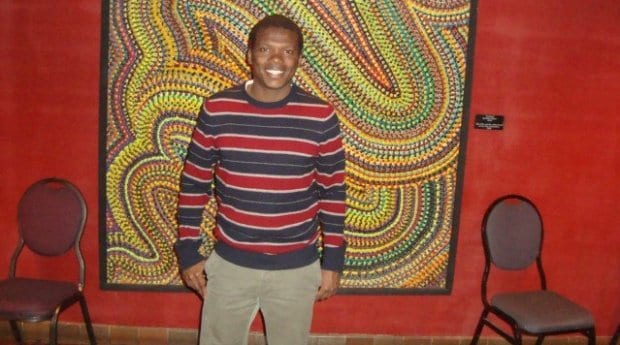An openly gay master’s student at McGill University claims the termination of his internship at Montreal’s Saint Columba House (SCH) community ministry of the United Church of Canada was discriminatory.
“Basically, I was told by SCH and McGill to stay in the closet,” says Kofi Norsah, who filed a complaint with the Quebec Human Rights and Youth Rights Commission in March 2011, one month after he was terminated. Norsah wants an apology from SCH and $15,000 compensation for moral damages.
Norsah was required to complete an eight-month internship with SCH before enrolling in the Master of Social Work program at McGill. Norsah claims SCH executive director Patricia Lisson told him not to disclose his sexual orientation to a female client who was in an abusive relationship. “Women in her position are afraid of gay guys,” Lisson allegedly said.
The McGill Daily reports that Wendy Thomson, director of the McGill School of Social Work, refused to discuss Norsah’s particular case. “Disclosure of one’s sexual orientation to clients is a very distinct question from disclosure to colleagues and coworkers. Sometimes it is appropriate, and sometimes not. A great deal depends on what is in the best interest of the client in the circumstances,” Thomson wrote in an email to The Daily.
“I feel that McGill has let me down big time and have not treated this case as a priority,” Norsah says. “I believe gay people should be allowed to talk about who they really are, just like everybody else. One’s sexual orientation is part of their identity — heterosexual people are not told to hide their heterosexuality. A supervisor should never tell a social worker to hide their sexual orientation.”
Fo Niemi, a former commissioner with the Quebec Human Rights and Youth Rights Commission who is now the executive director of Montreal’s Centre for Research-Action on Race Relations, says Norsah’s case has many policy ramifications.
“There seems to be a very visible policy void on this matter. What would have been ideal was when [McGill] was informed of the situation, they should have sat down with the field placement agency and Kofi to look at what the heart of the issue is here. Is Kofi not allowed to assert his sexual orientation or does it go much deeper?” Niemi asks.
Fred Phelps, the executive director of the Canadian Association of Social Workers, told The Daily that the CASW “does not have a formal position defined on this subject.”
“If people have a problem with a gay intern, this is a fundamental human rights issue,” Niemi maintains. “Now we have a student being blamed for being unreasonable. Basically, they are telling him to go back into the closet — and if you don’t want to go back into the closet, you will suffer the penalty.”
A decision by the Quebec Human Rights and Youth Rights Commission is now pending.
“If they rule against me, I believe I still did the right thing by being out and fighting McGill,” says Norsah, who was born and raised in Ghana before moving to Canada. “There was no way I could come out in Ghana, so I had to live a double life. I came out when I came to Canada. But now McGill wants me to live a double life like I did in Ghana.”


 Why you can trust Xtra
Why you can trust Xtra


